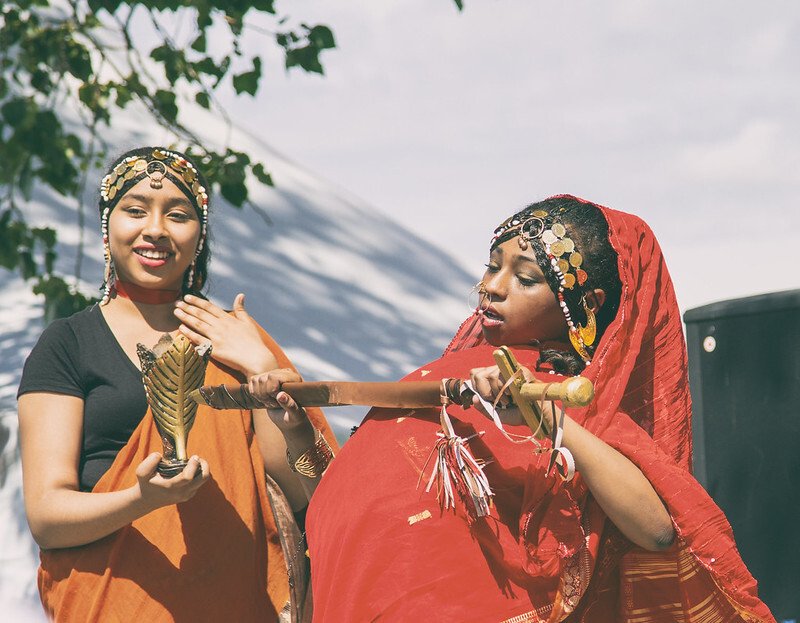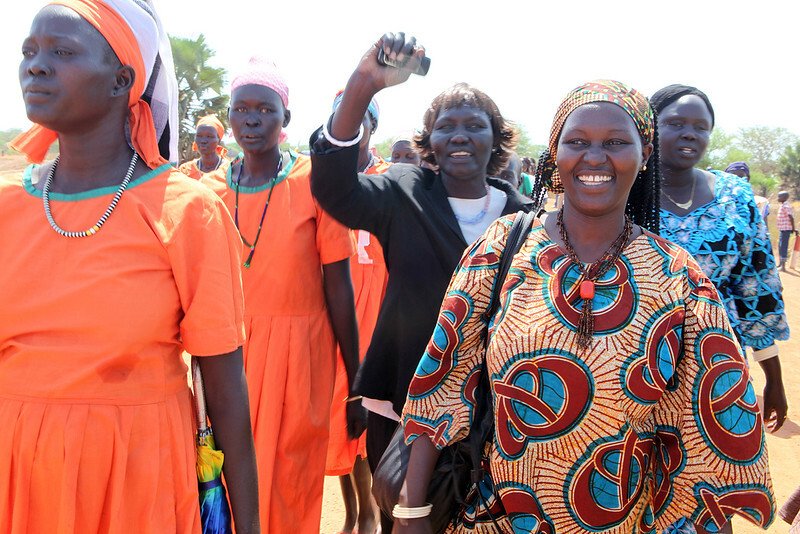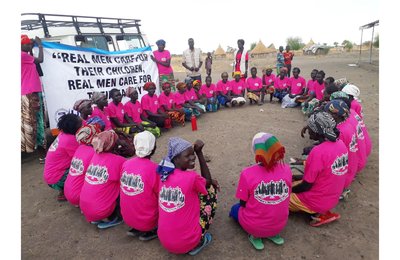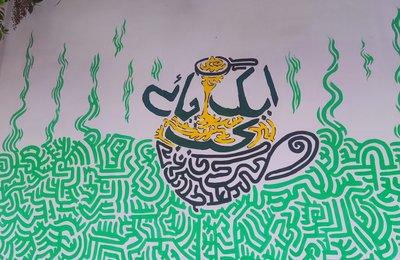In Kadugli, a small town in Sudan’s South Kordofan state, peace work isn’t happening in meeting halls; it’s happening under a tree. That’s where a few local women gather every week, notebooks in hand, sitting in sun-faded plastic chairs. These are mother-to-mother support group sessions. There’s no press, no programme name, just a quiet effort to solve problems before they escalate.
A few weeks ago, a revenge killing shook the town. Emotions were high, and people were scared that more violence was coming. The women stepped in, moving between homes, talking with families, doing what they could to calm things down. No title or funding, just care. And it worked.
Across Sudan, national ceasefires are announced often, sometimes every few weeks. But they rarely hold. Since April 2023, the fighting between the Sudanese Armed Forces (SAF) and the Rapid Support Forces (RSF) has displaced millions. Ceasefires might be agreed on in theory, but they don’t impact the people trying to survive day by day. In these gaps, women are stepping in.
When peace agreements fall short
In regions like Darfur, the Blue Nile, and the Nuba Mountains, violence hasn’t stopped. Markets have been destroyed. Families have scattered. Children have been pulled out of school. And yet, even here, peace work is happening, it just doesn’t look like what we’re used to seeing.
In one town, a few women created a simple food-sharing group. The idea was to reduce hunger-driven theft and keep the peace between neighbours. In another, women started mediating between displaced families and host communities. They weren’t trained professionals, but they knew that tension can grow quietly and escalate fast. These aren’t large interventions. But they’re working.
Culture as a compass
Many of these women aren’t inventing new methods; they’re returning to what’s always existed. In Sudanese culture, women have often played a central role in reconciliation. Older women recall how meals, music, and even silence were once used to repair broken trust between families or ethnic groups.

During Ramadan in a town in Blue Nile State, a group of women organised joint iftar meals. These were shared between communities that hadn’t spoken since the violence began. Sitting down to break fast together reminded people of what they still shared. It didn’t solve everything, but it shifted something. Sometimes peace starts like that, quietly, with food and presence.
This works because it’s local, rooted in the communities and their traditions. These women aren’t outsiders; they’re neighbours. They’ve lost people too. They’ve fled, come back, and stayed. That garners trust, and that trust is the foundation for everything else.
Their work is also quick and practical. In places where services have collapsed, women are the ones running informal schools, helping kids find safe places to sleep, and figuring out ways to get medicine to the sick.
A 2024 report by an INGO active in Sudan found that women’s informal peace groups were more effective at preventing revenge violence than formal authorities, mainly because they were already on the ground and moved faster.
Where real support matters
Despite everything they’re doing, many of these women aren’t included in formal peace talks. Funding rarely reaches them. Organising community meetings can be risky in areas controlled by armed groups, putting them at heightened risk. Burnout is common. And yet, they keep going.
As one community organiser in Omdurman said during a local peacebuilding forum:
If international actors want to help, it starts with listening. These women don’t need to be replaced or professionalised; they need safety, space, and some backing to keep doing what they’re already doing well.

Supporting this kind of work doesn’t require reinventing the wheel. It requires trust. It means asking: What are women already doing? What would help them do it better? Often, the answer isn’t much. Sometimes it’s just funding for safe transport, childcare, or a protected space to gather.
There’s no single answer to Sudan’s crisis, and no illusion that women’s efforts alone can end a war this complex. But what’s happening in these local spaces - under trees, in homes, during shared meals - is real. It’s happening quietly and without waiting for permission.
Too often, international peace efforts focus on the spectacle: summits, statements, high-level signatures. But these women are showing that peace isn’t only a political project, it’s a social one. It’s about protecting relationships, keeping kids in school, helping neighbours eat, and finding small ways to prevent tomorrow’s fight.
As the war drags on, and ceasefires continue to break, the women holding communities together need to be seen: not as symbols, but as strategists. They are doing the hard, daily work of keeping peace alive, even when the systems around them have failed.
If we want to understand what peace in Sudan looks like, we should start by listening to the women already building it.




